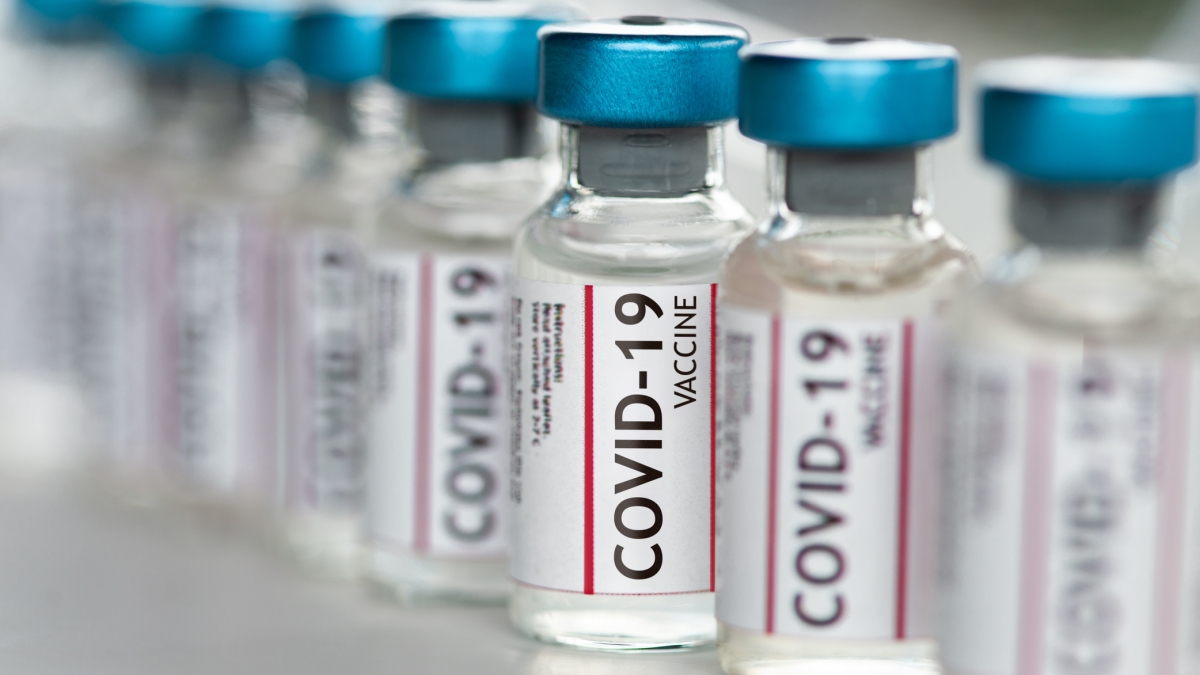Now that long-awaited vaccines have appeared, questions are arriving with them. How does the vaccination work? How long does it last? Is it a magic bullet that will send us all back to 2019 life, or is it accompanied by caveats? What will “normal” look like?
ASU News posed these vaccine questions to Matthew Scotch, an associate professor of biomedical informatics in the College of Health Solutions and assistant director of the Biodesign Center for Environmental Health Engineering at Arizona State University. His research focuses genomic and molecular epidemiology to study RNA viruses with a particular interest in influenza A viruses.
Scotch will be taking part in a panel discussion, "COVID-19 Vaccination: Benefits, Risks, Hesitancy and Next Steps," on Feb. 18, offered by ASU’s College of Health Solutions as part of their Health Talks: COVID-19 Series. The series features experts from a variety of backgrounds sharing their knowledge on specific topics related to COVID-19, including causes of the virus, how scientists use biomedical data to make data-driven decisions and how to maintain well-being and health throughout the pandemic.
The series is open to anyone seeking information and knowledge while navigating the current health crisis. This event qualifies for continuing education — health professionals can earn one continuing education credit (CEU) at no cost.
Register for COVID-19 Vaccination: Benefits, Risks, Hesitancy and Next Steps
Question: What is your personal view of getting vaccinated? Why does it matter?
Answer: It matters because we need to protect ourselves from the virus — protect ourselves and protect others. If we're protected obviously it'll help you. If you do get infected, you're at this point not going to really feel much of it, is the understanding. You still could potentially transmit it to others though. So people have to still be cautious of that and understand that just getting the vaccine doesn't mean you can go back to life as we know it in 2019. You still have to wear a mask and you still have to be socially distant. So there might be others at this point that aren't vaccinated due to the rollout process and the allocations of groups. So you have to be understanding of that. Just because you got your shots — you still have to be mindful that you could transmit it to other people.
Q: Have you gotten your vaccination yet?
A: Yes. … I went to State Farm Stadium and got the Pfizer-BioNTech vaccine. And then on Super Bowl Sunday, (I got) my second shot of that and should be good to go for now.
Q: How long does the vaccine last and how long does that immunity last?
A: I think there's an expectation that you'll be good for at least this year. But it's not going to give you lifetime immunity. As we see with influenza because of antigenic drift, we need to get vaccines updated every year. So the manufacturers are going to have to come out with new vaccines and we're going to need to get them in order to become immune again. So we should be good for the short term, but the long term is, I'm thinking, it's going to be sort of like it is for flu every year or so.
Q: If everyone goes out there and gets the vaccine and we create some kind of immunity, what will the summer be like? Will we be able to go back to the beach, to the movies to concerts? Or no?
A: It's sort of the unknown. Now that we're here, how far back do we go to our life that we lived in 2019? Maybe there's some sort of that — where we try to do more outside in larger gatherings. Maybe more inside stuff in smaller gatherings. But I could see people still wearing masks. You know, all the plexiglass that companies have put up in stores now at checkout lines and things, my thing is: You already paid for them. They're there. So why take them down, exactly? No one's really complaining about having to look at someone through plexiglass in a checkout aisle. … I think we're going to keep that stuff. … I think we're a little more knowledgeable now, a little more cautious with infectious diseases. You know, we've seen that wearing masks and social distancing has basically caused flu infections this season to plummet. … Eventually concerts and things outside will come back.
Top photo by iStock
More Science and technology
2 ASU faculty elected as fellows to National Academy of Inventors
Arizona State University faculty members Bertram Jacobs and Klaus Lackner have been elected as fellows to the National Academy of Inventors (NAI). Both are being honored for research that…

Harvesting satellite insights for Maui County farmers
Food sovereignty can refer to having access to culturally significant foods, but Noa Kekuewa Lincoln believes it goes farther than that.“I think the concept goes beyond the foods themselves to having…

Google grant creates AI research paths for underserved students
Top tech companies like Google say they are eager to encourage women and members of historically underrepresented groups to consider careers in computer science research.The dawn of the era of…
